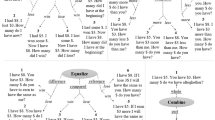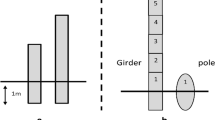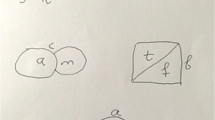Abstract
In this study we investigate the arithmetic andalgebra word problem-solving skills andstrategies of future primary and secondaryschool teachers in Flanders (Belgium).Moreover, we describe the evolution of theseskills and strategies from the beginning to theend of their teacher education. The resultsshow that future secondary school mathematicsteachers preferred the use of algebra, evenwhen an arithmetic solution was morestraightforward. The solutions of futureprimary school teachers were more diverse: onesubgroup tended to apply exclusively arithmeticmethods (which led to failures on the mostdifficult word problems), whereas anothersubgroup was more adaptive in its strategychoices. Finally, student teachers evolved intheir problem-solving skills during theirteacher education, but not in their strategypreferences. The research findings indicatethat, in the education of pre-service primaryand secondary school teachers, there is a needfor an explicit treatment of pupils' transitionfrom arithmetical to algebraic thinking.
Similar content being viewed by others
REFERENCES
Ainley, J. (1999). Doing algebra-type stuff: emergent algebra in the primary school. Proceedings of the 23rd annual conference of the International Group for the Psychology of Mathematics Education (Vol. 2, pp. 9–16). Haifa, Israel.
Bednarz, N. & Janvier, B. (1996). Emergence and development of algebra as a problemsolving tool: Continuities and discontinuities with arithmetic. In N. Bednarz, C. Kieran & L. Lee (Eds.), Approaches to algebra: Perspectives for research and education (pp. 115–136). Dordrecht: Kluwer.
Boero, P., Dapueto, C. & Parenti, L. (1996). Didactics of mathematics and the professional knowledge of teachers. In A. J. Bishop, K. Clements, C. Keitel, J. Kilpatrick & C. Laborde (Eds.), International handbook of mathematics education (pp. 1097–1121). Dordrecht: Kluwer.
Brown, S. I., Cooney, T. J. & Jones, D. (1990). Mathematics teacher education. In W. R. Houston (Ed.), Handbook of research on teacher education (pp. 639–656). New York: Macmillan.
Calderhead, J. (1996). Teachers: Beliefs and knowledge. In D. Berliner & R. Calfee (Eds.), Handbook of educational psychology (pp. 709–725). New York: Macmillan.
Carpenter, T. P., Fennema, E., Peterson, P. I. & Carey, D. A. (1988). Teachers' pedagogical content knowledge of students' problem solving in elementary arithmetic. Journal for Research in Mathematics Education, 19, 385–401.
Carpenter, T. P. & Levy, L. (2000). Developing conceptions of algebraic reasoning in the primary grades. (Res. Rep. 00- 2). Madison, WI: National Center for Improving Student Learning and Achievement in Mathematics and Science. [available at www.wcer.wisc.edu/ncisla]
Carraher, D., Brizuela, B. & Schliemann, A. (2000). Bringing out the algebraic character of arithmetic: Instantiating variables in addition and subtraction. Proceedings of the 24th annual conference of the International Group for the Psychology of Mathematics Education (Vol. 2, pp. 145–152). Hiroshima, Japan.
Davis, R. (1985). ICME-5 Report: Algebraic thinking in the early grades. Journal of Mathematical Behavior, 4, 195–208.
De Corte, E., Greer, B. & Verschaffel, L. (1996). Learning and teaching mathematics. In D. Berliner & R. Calfee (Eds.), Handbook of educational psychology (pp. 491–549). New York: Macmillan.
De Rijdt, C. (1999). Instaptoets wiskunde voor aspirant-leerkrachten (wiskundedidactiek) [A Mathematics intake test for future primary-school teachers]. Unpublished master's thesis, University of Leuven, Belgium.
Discussion document for the twelfth ICMI study (2000). Educational Studies in Mathematics, 42, 215–224.
Fennema, E. & Loef, M. (1992). Teachers' knowledge and its impact. In D. A. Grouws (Ed.), Handbook of research on learning and teaching mathematics (pp. 147–164). New York: Macmillan.
Filloy, E. & Sutherland, R. (1996). Designing curricula for teaching and learning algebra. In A. J. Bishop, K. Clements, C. Keitel, J. Kilpatrick & C. Laborde (Eds.), International handbook of mathematics education (pp. 139–160). Dordrecht: Kluwer.
Gravemeijer, K. (1994). Developing realistic mathematics education. Utrecht, The Netherlands: Freudenthal Institute, University of Utrecht.
Grouws, D. A. & Schultz, K. A. (1996). Mathematics teacher education. In J. Sikula, T. J. Buttery & E. Guyton (Eds.), Handbook of research on teacher education (pp. 442–458). New York: Macmillan.
Hall, R., Kibler, D., Wenger, E. & Truxaw, C. (1989). Exploring the episodic structure of algebra story problem solving. Cognition and Instruction, 6, 223–283.
Hatano, G. (1988). Social and motivational bases for mathematical understanding. New Directions for Child Development, 41, 55–70.
Herscovics, N. & Linchevski, L. (1994). The cognitive gap between arithmetic and algebra. Educational Studies in Mathematics, 27, 59–78.
Kaput, J. (1995). Transforming algebra from an engine of inequity to an engine of mathematical power by “algebrafying” the K-12 curriculum. Paper presented at the 1995 NCTM meeting.
Kieran, C. (1992). The learning and teaching of school algebra. In D. A. Grouws (Ed.), Handbook of research on learning and teaching mathematics (pp. 390–419). New York: Macmillan.
Koedinger, K. R. & Tabacheck, H. J. M. (1994, April). Two strategies are better than one: Multiple strategy use in word problem solving. Paper presented at the annual meeting of the American Educational Research Association. San Francisco.
Lee, L. & Wheeler, D. (1989). The arithmetic connection. Educational Studies in Mathematics, 20, 41–54.
Linchevski, L. & Herscovics, N. (1996). Crossing the cognitive gap between arithmetic and algebra: operating on the unknown in the context of equations. Educational Studies in Mathematics, 30, 38–65.
Nathan, M. J. & Koedinger, K. R. (2000). Teachers' and researchers' beliefs about the development of algebraic reasoning. Journal for Research in Mathematics Education, 31, 168–190.
National Council of Teachers of Mathematics (2000). Principles and standards for school mathematics. Reston, VA: NCTM.
Reed, S. K. (1999). Word problems: Research and curriculum reform. Mahwah, NJ: Lawrence Erlbaum Associates.
Schmidt, S. (1994). Passage de l'arithmétique à l'algèbre et inversement de l'algèbre à l'arithmétique, chez les futurs enseignants dans un contexte de résolution de problèmes [Future teachers' transition from arithmetic to algebra in a problem solving context]. Unpublished doctoral dissertation, Université de Québec à Montréal, Canada.
Schmidt, S. (1996). La résolution de problèmes, un lieu privilégié pour une articulation fructueuse entre arithmétique et algèbre [Problem solving as a privileged context for a fruitful connection between arithmetic and algebra]. Revue de Sciences de l'Education, 22, 277–294.
Schmidt, S. & Bednarz, N. (1997). Raisonnements arithmétiques et algébriques dans un contexte de résolution de problèmes: difficultés rencontrées par les futurs enseignants [Arithmetical and algebraic reasoning in a problem-solving context: difficulties met by future teachers]. Educational Studies in Mathematics, 32, 127–155.
Schoenfeld, A. H. (1992). Learning to think mathematically: problem solving, metacognition and sense making in mathematics. In D. A. Grouws (Ed.), Handbook of research on mathematics teaching and learning (pp. 334–370). New York: Macmillan.
Sfard, A. (1991). On the dual nature of mathematical conceptions. Reflections on processes and objects as different sides of the same coin. Educational Studies in Mathematics, 22, 1–36.
Sfard, A. & Linchevski, L. (1994). The gains and pitfalls of reification: the case of algebra. Educational Studies in Mathematics, 26, 191–228.
Shulman, L. S. (1985). On teaching problem solving and solving the problems of teaching. In E. A. Silver (Ed.), Teaching and learning mathematical problems solving: Multiple research perspectives (pp. 439–450). Hillsdale, NJ: Laurence Erlbaum.
Shulman, L. S. (1986). Those who understand: Knowledge growth in teaching. Educational Researcher, 15(2), 4–14.
Slavitt, D. (1999). The role of operation sense in transitions from arithmetic to algebraic thought. Educational Studies in Mathematics, 37, 251–274.
Stacey, K. & MacGregor, M. (2000). Learning the algebraic method of solving problems. Journal of Mathematical Behavior, 18(2), 149–167.
Swafford, J. O. & Langrall, C. W. (2000). Grade 6 students' preinstructional use of equations to describe and represent problem situations. Journal for Research in Mathematics Education, 31, 89–112.
Thompson, A. (1992). Teachers' beliefs, and conceptions: A synthesis of the research. In D. A. Grouws (Ed.), Handbook of research on learning and teaching mathematics (pp. 127–146). New York: Macmillan.
van Amerom, B. (2001). Reinvention of algebra: Developmental research on the transition from arithmetic to algebra. Unpublished doctoral dissertation, University of Utrecht, the Netherlands.
Van de Plas, I. (1995). De inhoud van het vak Wiskunde in de opleidingsinstituten voor leerkrachten lager onderwijs in Vlaanderen: een exploratief onderzoek [The contents of the mathematics course in the training institutes for primary-school teachers in Flanders: an exploratory study]. Unpublished master's thesis, University of Leuven, Belgium.
Van Dooren, W., Verschaffel, L. & Onghena, P. (2001). Rekenen of algebra? Gebruik van en houding tegenover rekenkundige en algebraïsche oplossingswijzen bij toekomstige leerkrachten [Arithmetic or algebra? Student-teachers' use of and attitudes against arithmetical and algebraic problem solving strategies]. Leuven: University Press.
Van Dooren, W., Verschaffel, L. & Onghena, P. (2002). The impact of preservice teachers' content knowledge on their evaluation of students'strategies for solving arithmetic and algebra word problems. Journal for Research in Mathematics Education, 33(5), 319-351.
Vergnaud, G. (1988). Long terme et court terme dans l'apprentissage de l'algèbre. In C. Laborde (Ed.), Actes du premier colloque franco-allemand de didactique des mathématiques et de l'informatique (pp. 189–199). Paris: La Pense Sauvage.
Verschaffel, L., Greer, B. & De Corte, E. (2000). Making sense of word problems. Lisse, The Netherlands: Swets & Zeitlinger.
Wolters, M. (1976). Van rekenen naar algebra [From arithmetic to algebra]. Unpublished doctoral dissertation, University of Utrecht, the Netherlands.
Author information
Authors and Affiliations
Rights and permissions
About this article
Cite this article
Van Dooren, W., Verschaffel, L. & Onghena, P. Pre-service Teachers' Preferred Strategies for Solving Arithmetic and Algebra Word Problems. Journal of Mathematics Teacher Education 6, 27–52 (2003). https://doi.org/10.1023/A:1022109006658
Issue Date:
DOI: https://doi.org/10.1023/A:1022109006658




